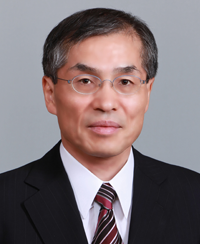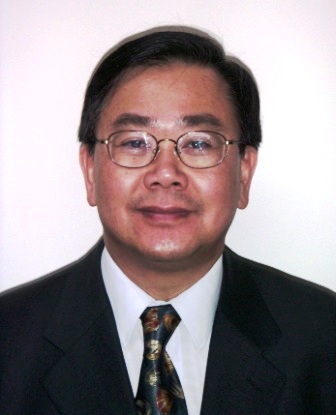| |
Humanware: The Third Ware Which Creates Innovation in Information Technology
Information technology has been developing remarkably in both hardware and software. People are now
closely interconnected through information networks which together form a complex and dynamic supranetwork.
One urgent challenge in this rapidly changing information society is the development of an
entirely new concept: "humanware," which is considered the third ware complementing hardware and
software technologies. It addresses the flows of information linking humans and the resulting
transformation of human relationships. To acquire skills related to humanware, it is essential to
understand the "information dynamics" required to construct an information society attuned to both
humans and the environment. It is also necessary to understand "cognitive dynamics," the dynamics of
higher brain functions for receiving, understanding, and generating information, as well as "biological
dynamics," the dynamics of biological systems to adapt to people and the environment. In this talk, I first
discuss the importance of humanware for creating innovation in information technology, and then
introduce our ongoing Humanware Innovation Program supported by the Program for Leading Graduate
Schools of the MEXT (the Ministry of Education, Culture, Sports, Science and Technology in Japan). This
program aims at fostering leaders to construct flexible, robust, and sustainable systems that support an
ever-changing social environment based on the concept of humanware.
Biography of Shojiro Nishio
Dr. Shojiro Nishio received his B.E., M.E., and Ph.D. degrees from Kyoto University in Japan, in 1975, 1977, and 1980, respectively. He has been a full professor at Osaka University since August 1992, and was bestowed the prestigious title "Distinguished Professor of Osaka University" in July 2013. He served as a Vice President and Trustee of Osaka University from August 2007 to August 2011. Dr. Nishio has authored or co-authored more than 600 refereed journal and conference papers. He served as the Program Committee Co-Chairs for several international conferences including DOOD 1989, VLDB 1995, and IEEE ICDE 2005. He has also served as an editor of several renowned journals including IEEE Trans. on Knowledge and Data Engineering, VLDB Journal, ACM Trans. on Internet Technology, and Data & Knowledge Engineering. Dr. Nishio has received numerous awards for his research contributions, including the Medal with Purple Ribbon from the Japanese Emperor in 2011. He is also a Fellow of IEEE, IEICE and IPSJ, and is a member of four learned societies, including ACM.
|
| |
Video Game as a Service - Cloud Computing Enabled Video Gaming Anywhere on Any Device
There is a growing demand by consumers to access their digital entertainments, which are increasingly
cloud-based, whenever and wherever they have access to networks of diverse characteristics, and using
whatever devices they have in their hands. To address this diversity, we have embarked on a project is to
develop design methodologies and enabling technologies to support “play anywhere on any device,
pause and resume on any device” capabilities in next-generation cloud-based video games. In particular,
scalable and ubiquitous computing resources in the cloud can enable sophisticated video games to be
played on mobile devices that have limited processing and storage capacities. In this talk, we start with an
overview of the general characteristics of mobile cloud computing and related research issues. We
propose a cloud-based video game system with cooperative video sharing over a secondary ad hoc
wireless network. Experimental results show that the expected server transmission rate can be
significantly reduced compared to the conventional video encoding schemes for cloud games. We
conclude with a discussion on our ongoing research to develop a cognitive framework that will provide
“video game as a service” to players using a variety of devices to access computer games in the cloud
over different wireless and wireline networks with diverse quality of service characteristics.
Biography of Victor C.M. Leung
Dr. Victor Leung is a Professor of Electrical and Computer Engineering and holder of the TELUS Mobility Research Chair at the University of British Columbia. He has contributed some 700 technical papers and book chapters in the areas of wireless networks and mobile systems. He was a Distinguished Lecturer of the IEEE Communications Society. He has been serving on the editorial boards of the IEEE Wireless Communications Letters and several other journals. Previously, he has served on the editorial boards of the IEEE Transactions on Computers, Vehicular Technology and Wireless Communications, and the IEEE Journal on Selected Areas in Communications. He has contributed to the organizing and technical program committees of numerous conferences, in a leadership role in many cases. Dr. Leung was a winner of the 2012 UBC Killam Research Prize, and the IEEE Vancouver Section Centennial Award. He is a Fellow of IEEE, a Fellow of the Royal Society of Canada, a Fellow of the Canadian Academy of Engineering, and a Fellow of the Engineering Institute of Canada.
|



